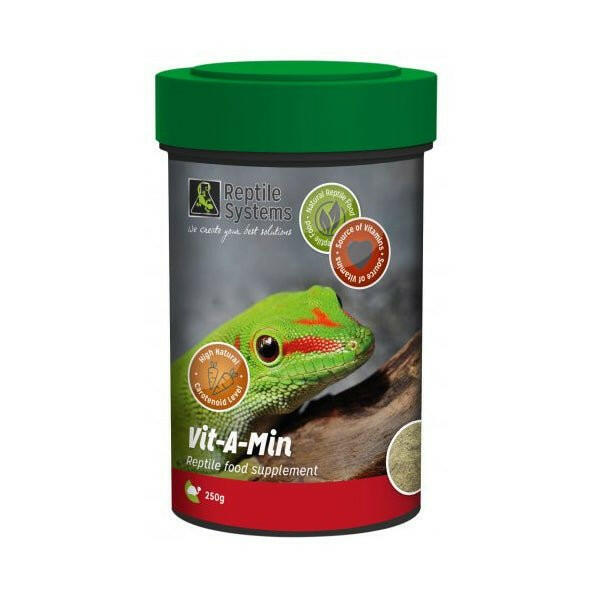We hear lots of talk about calcium and its benefits in the reptile hobby but what this refers to is the naturally occurring common form calcium carbonate. It is abundant in nature and found in limestone, chalk and is the fossilised remnants of early marine life.
Magnesium Carbonate
Magnesium carbonate is compound that occurs naturally, magnesium is one of the elements that are essential for life. It aids the absorption of calcium as well as regulating nerve and muscle control and is needed in hundreds of other bodily biochemical reactions.
Brewer's Yeast
Brewer?s yeast is useful for digestive health; contains amino acids, minerals and is packed with B-complex vitamins include, B1 (thiamine), B2 (riboflavin), B3 (niacin), B5 (pantothenic acid), B6 (pyridoxine), B9 (folic acid), and B7 (biotin).
Natural Red Clay
Natural red clay or Pelagic red clay accumulates in the deepest and most remote areas of the ocean. It covers 38% of the ocean floor and accumulates more slowly than any other sediment type as they settle through the water column. These sediments consist of eolian dust, clay minerals, volcanic ash, residue of siliceous microfossils, accessory constituents found in red clay including meteorite dust and aquatic skeletal mass. These clays are very mineral rich and include a wealth of trace elements.
Mycoprotein
Mycoproteins are considered 'vegetable' in origin and are derived from fungi. They contain all nine essential amino acids and fall into the category of being a source of first-class protein, comparable with other protein sources such as meat and fish. Mycoprotein is a high-protein food with a high fiber content and is low in fat with no cholesterol.
Kelp
Kelp grows in the 'underwater forests' of shallow oceans and has been declared 'the most mineralized vegetable on earth'. Seaweeds provide a rich and balanced source of key macro and micronutrients, antioxidants, polyunsaturated fatty acids, with 11 vitamins and 46 minerals and more than 15 amino acids. Kelp health benefits are well documented for enhancing bone density, fighting inflammation, cancer prevention and boosting immunity. Algae use carotenoids to make provitamin A.
Spirulina with DHA
This is one of the algae that we have specially grown for us. It is extremely nutrient dense, containing almost the full spectrum of B-vitamins which are essential to the health of the central nervous system and the brain. High in many other essential vitamins and minerals, the nutrients in spirulina are highly bioavailable and easily broken down by the digestive system. Containing all 9 essential amino acids, Spirulina is high in net protein utilisation, meaning it is 85% - 95% digestible ? with its amino acids being delivered to the body for almost instant absorption. Uniquely, Spirulina also contains the phytochemical phycocyanin, the pigment that gives it its blue-green hue. Often referred to as 'The Wonder Molecule', studies of phycocyanin have shown it has extremely high ntioxidant activity and has powerful anti-inflammatory properties. Gram for gram, Spirulina may be the single?most nutritious food?on the planet, it contains 26 x the calcium of milk.
Dunaliella Salina
Dunaliella salina?is a type of micro-algae?especially found in sea salt fields. Revered for its?antioxidant?activity and ability to create large amounts of?high-quality carotenoids. This is another alga that is grown exclusively for us, under license by the French overnment, in a protected area of outstanding natural beauty. It takes several months to grow and has a limit on how much can be harvested at any one time. Due to the abundance of beta-carotene, which is a powerful antioxidant?as well as a?vitamin precursor,?D.Salina?is a popular pro-vitamin A food supplement?for both human and animal use. Carotenoids act as antioxidants but are also crucial for eyesight by adding clear vison and preventing damage by absorbing near ultraviolet and blue light. The best-known carotenoid, Carotene, gives carrots their bright orange color. The pink colour of flamingos and salmon come from carotenoids. Flamingos, salmon, shrimp and lobster get their pigments from consuming algae or algae eaters. Algae contains eight times the carotene provided by carrots.
Carrot Powder
Carrots contain the best-known carotenoid, carotene, which gives them their bright orange colour. Carrots are packed with vitamins and minerals and are rich in beta carotene, which your body converts into?vitamin A. This nutrient promotes good vision and is important for growth, development, and immune function. They also contain B7 vitamin Biotin, formerly known as vitamin H, which plays an important role in fat and protein metabolism. A group of related vitamins, B6, is involved in the conversion of food into energy. Interestingly they also have Vitamin K1 which is important for blood clotting and bone health and good levels of potassium, which is an essential element and important for many bodily functions.
Bee Pollen
This is probably the most talked about reptile supplement in recent years, and rightly so, as it contains a wealth of nutrients with many benefits, over 250 biologically active components and is rich in minerals and antioxidants.
Papaya
Papaya is rich in fiber, Vitamin A, C, E and antioxidants like beta-carotene which helps prevent damage from free radicals.
Silicic acid
Silicic acid is a natural compound of the mineral substance silicon and oxygen. It can bind to a variety of harmful and toxic substances, including pathogens. This renders them harmless so that they can be removed naturally through the intestines and out of the body. Silicic acid exists naturally in seawater as well as sand, quartz and even the human body. Orthosilic acid is found in tissues, bones, tendons, kidneys and the liver, and is necessary for life. This mineral content is available in food sources such as beets, brown rice, bell peppers, soybeans, alfalfa and leafy green vegetables such as kale and whole grains.
Mango
Although we use mango mainly as a natural attractant, it also contains a wealth of nutrients and antioxidants. Mangos contain over 20 different vitamins and minerals, one serving provides 35% of your daily vitamin A, 100% of your daily vitamin C and 10% of your daily vitamin B6.


